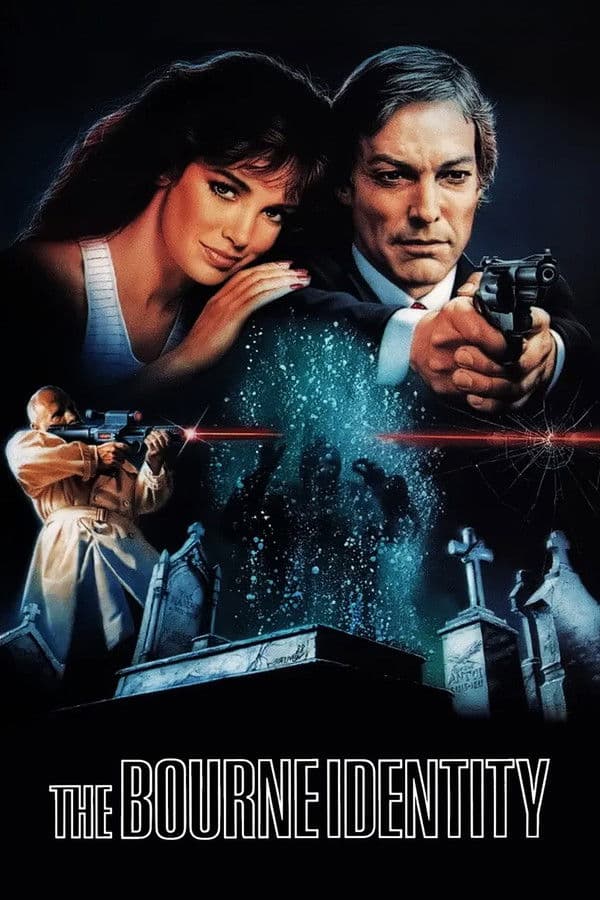
The Bourne Identity
1988 • Action & Adventure, Drama
Wounded to the brink of death and suffering from amnesia, Jason Bourne is rescued at sea by a fisherman. With nothing to go on but a Swiss bank account number, he starts to reconstruct his life, but finds that many people he encounters want him dead. However, Bourne realizes that he has the combat and mental skills of a world-class spy—but who does he work for?
Why you should read the novel
Reading Robert Ludlum’s The Bourne Identity offers a far more immersive and psychologically complex experience than watching the 1988 TV adaptation. The novel delves deeply into Jason Bourne’s torment, fractured memories, and desperate quest for truth, offering readers a truly gripping and layered adventure.
Ludlum’s writing builds relentless suspense, portrays a shadowy world of espionage with fine detail, and populates the story with morally ambiguous characters and intricate conspiracies. The page-turning narrative draws you into Bourne’s struggle for survival and self-discovery across Europe.
Exploring the source novel puts you in the protagonist’s disoriented mind, lets you puzzle out mysteries alongside Bourne, and reveals rich character backstories and motivations that TV adaptations can only hurriedly summarize or omit. The depth and tension of the book simply can’t be matched on the small screen.
Adaptation differences
One major difference between the 1988 TV adaptation and Robert Ludlum’s novel is the condensation of the plot. The series streamlines many of the intricate subplots and red herrings present in the novel, often simplifying complex threads or omitting secondary characters altogether for faster pacing and to fit the runtime constraints.
Another divergence lies in the characterization of Jason Bourne and Marie. On screen, Jason’s internal turmoil and fragmented identity are softened, and Marie’s background and motivations are less layered compared to the richly drawn portrayals in the book. This makes the television version’s character arcs less nuanced.
The adaptation also alters the geographic scope and the cat-and-mouse pursuit between Bourne and his adversaries. In the book, Bourne’s global journey is far more elaborate, with extended scenes in Europe and vivid descriptions of exotic locales, whereas the series condenses and reorders key set pieces.
Finally, the TV adaptation significantly downplays the gritty violence and moral ambiguity that are hallmarks of Ludlum’s writing. Some plot twists and revelations are altered or omitted, particularly relating to Bourne’s true identity and his connections to various covert organizations, which ultimately makes the TV story less surprising and psychologically rich than the novel.
The Bourne Identity inspired from
The Bourne Identity
by Robert Ludlum